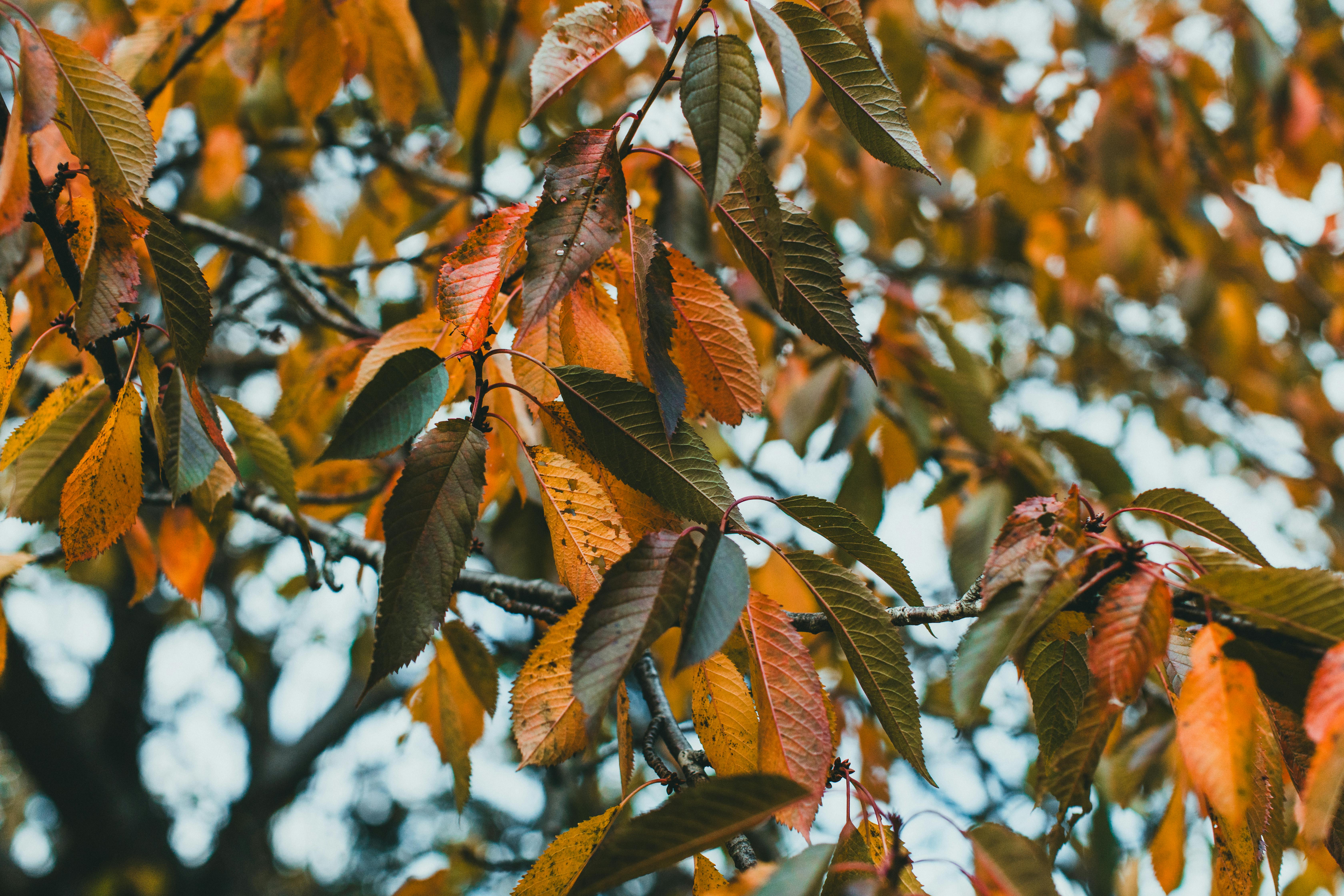👋 Click the mic button to talk to Alfred, the Todd's Seeds Gardening/Sprouting Expert – Feel free to ask him anything!
Ask Virtual Todd Anything - Click the Mic
Mulching plays a crucial role in gardening by providing a wide range of benefits for your plants and soil. From conserving water and suppressing weeds to enhancing soil fertility and regulating temperature, mulching is like the superhero that quietly saves the day in your garden. By forming a protective layer on the soil’s surface, mulch creates a barrier that locks in moisture, prevents weed growth, and keeps roots insulated from extreme temperatures. It’s an essential practice that can significantly improve the health and productivity of your garden, making mulching a must-have for any green thumb.

Improved Soil Health
Retaining Moisture
Mulching plays a crucial role in retaining moisture in the soil. When you apply a layer of mulch on top of the soil, it acts as a protective barrier, preventing water from evaporating quickly under the scorching sun. This is especially beneficial in hot and arid climates where water conservation is essential. By retaining moisture, mulch allows plants to access water more efficiently, reducing the frequency of watering and promoting healthier root development.
Reducing Soil Erosion
Soil erosion can be detrimental to your garden’s health, as it washes away valuable topsoil and exposes delicate roots to the elements. Mulch helps combat erosion by creating a protective layer on the soil’s surface. The mulch absorbs the impact of raindrops, preventing them from dislodging soil particles and carrying them away. Additionally, mulch helps break the fall of water, reducing the force it exerts on the soil and minimizing erosion caused by runoff.
Regulating Soil Temperature
Mulching can effectively regulate soil temperature by acting as an insulating layer. In cold climates, mulch helps to keep the soil warm by trapping heat and preventing it from escaping into the atmosphere. This is particularly important during winter months when freezing temperatures can damage plant roots. On the other hand, in hot climates, mulch provides a cooling effect by shielding the soil from direct sunlight, preventing it from becoming too hot and drying out. By maintaining a more stable soil temperature, mulching creates a favorable environment for plant growth.
Weed Control
Smothering Weeds
One of the greatest advantages of mulching in gardening is its ability to smother weeds. When you apply a thick layer of organic mulch, it creates a physical barrier that prevents sunlight from reaching the weed seeds and inhibiting their germination. As a result, weeds struggle to emerge and grow through the mulch layer. This saves you a considerable amount of time and effort in manual weeding, allowing you to focus more on enjoying your garden.
Blocking Sunlight
Weeds are opportunistic plants that thrive on sunlight. Mulching inhibits weed growth by blocking the sunlight that weeds need to sprout and grow. By eliminating sunlight exposure, mulch hinders the photosynthesis process, vital for weed survival. The consistent coverage provided by well-applied mulch significantly reduces the number of weeds that can take root in your garden, creating a more aesthetically pleasing and low-maintenance environment.
Preventing Weed Seeds from Germinating
Mulching not only provides a physical barrier to prevent weed growth but also creates unfavorable conditions for weed seed germination. Organic mulches, such as wood chips, straw, or shredded leaves, release organic acids as they break down. These acids, combined with the shading effect, create an inhospitable environment for weed seeds to sprout and establish themselves. By mulching your garden regularly, you can greatly reduce the weed population and maintain a cleaner, weed-free growing space.
Nutrient Cycling
Organic Matter Breakdown
When organic mulch decomposes over time, it aids in the breakdownt of organic matter in the soil. As the mulch layers break down, they release nutrients into the soil, enriching it with organic matter. This decomposition process is facilitated by earthworms and other soil-dwelling organisms, which feed on the mulch and convert it into nutrient-rich humus. The organic matter breakdown promotes a healthy soil structure, improves aeration, and allows for better water and nutrient retention.
Supplying Nutrients
Mulching not only contributes to the breakdown of organic matter but also supplies essential nutrients directly to the plants. Depending on the type of mulch you choose, it can provide a range of nutrients such as nitrogen, potassium, phosphorus, and micronutrients. For example, leaf mulch is high in potassium, cocoa bean mulch contains nitrogen, and seaweed mulch is rich in trace minerals. By incorporating nutrient-rich mulch into your gardening practices, you ensure a consistent supply of essential elements for plant growth and vitality.
Enhancing Soil Fertility
The constant addition of organic mulch improves soil fertility over time. As the mulch decomposes, it enriches the soil with organic matter, which enhances its nutrient-holding capacity and improves its overall fertility. The increased organic matter content promotes beneficial microbial activity in the soil, creating a favorable environment for beneficial bacteria and fungi that aid in nutrient cycling. Additionally, the improved soil structure resulting from regular mulching allows for better root development and nutrient uptake by plants.
Preventing Disease
Reducing Soil Splashing
Mulching helps prevent the spread of soil-borne diseases by reducing soil splashing. When rain or irrigation water lands on bare soil, it can splash pathogens onto plants, leading to disease development. However, the layer of mulch acts as a shield, preventing the droplets from directly hitting the soil surface and reducing the chances of pathogens splashing onto plant foliage. By minimizing soil splashing, mulching provides an effective measure to limit the spread of diseases in your garden.
Preventing Pathogen Spread
In addition to reducing soil splashing, mulching proves to be a valuable tool in preventing the spread of pathogens. Mulch acts as a physical barrier, preventing direct contact between plants and soil-borne pathogens that may be present in the soil. This barrier hinders the movement and transmission of diseases, protecting your plants from infection. By implementing mulching as part of your gardening routine, you can minimize the risk of disease outbreaks and maintain healthier plants.
Minimizing Pest Infestations
Mulching can also help minimize pest infestations by creating an inhospitable environment for pests. Some types of mulch, particularly those with strong odors such as cedar or certain herbs, act as natural repellents for insects. The aromatic compounds released by the mulch repel pests and discourage them from feeding or laying eggs near your plants. Additionally, the mulch layer can deter crawling pests like slugs and snails, making it more difficult for them to reach your prized flowers or vegetables.

Managing Garden Pests
Repelling Insects
Certain types of mulch possess insect-repellent properties, making them an effective tool for managing garden pests. For instance, cedar mulch is known to repel ants, moths, and some species of beetles. By spreading cedar mulch around your plants, you create a natural barrier that keeps these pests at bay. Similarly, mulching with marigold or mint can help deter aphids and certain flying insects. Utilizing pest-repellent mulches provides an eco-friendly approach to pest management, reducing the need for synthetic pesticides.
Deterring Slugs and Snails
Slugs and snails can wreak havoc on your garden, devouring leaves, stems, and flowers. Mulching with materials that are rough or abrasive, such as crushed eggshells or diatomaceous earth, can deter these slimy invaders. When slugs or snails come into contact with these materials, their soft bodies are often deterred by the sharp edges or absorbent properties, making it more challenging for them to reach your plants. By using mulch as a protective barrier, you can effectively deter slugs and snails from feasting on your garden.
Controlling Nematodes
Nematodes are microscopic worms that can cause damage to plant roots, inhibiting their ability to absorb water and nutrients. Certain types of mulch, such as marigold or mustard plant residue, contain natural compounds that exhibit nematicidal properties, effectively controlling nematode populations. These mulches release chemical compounds as they break down, which interfere with the nematodes’ life cycle and reduce their numbers. By incorporating nematode-suppressing mulches into your gardening practices, you can mitigate the damage caused by these tiny pests.
Promoting Plant Growth
Reducing Competition for Resources
Mulching creates an environment that reduces competition among plants for essential resources such as water, nutrients, and sunlight. By providing a layer of insulation, mulch helps maintain a more consistent soil moisture level, ensuring that neighboring plants have equal access to water. Additionally, as the mulch breaks down, it releases nutrients into the soil, promoting uniform nutrient availability for all plants. The shading effect of mulch blocks excessive sunlight, preventing taller plants from overshadowing smaller ones. This equal distribution of resources encourages healthier and more balanced plant growth.
Protecting Plant Roots
The layer of mulch acts as a protective barrier for plant roots, shielding them from extreme temperatures and physical damage. In winter, mulch provides insulation, reducing the risk of frost damage to the roots. During the hot summer months, it keeps the soil cooler, preventing root stress and dehydration. Furthermore, the mulch layer cushions the impact of heavy rain or watering, preventing soil compaction and root damage. By providing a protective layer around plant roots, mulching ensures their well-being and enhances overall plant health.
Stimulating Microbial Activity
Mulching contributes to the stimulation of beneficial microbial activity in the soil. As organic mulch breaks down, it provides a food source for earthworms, bacteria, fungi, and other microorganisms that live in the soil. These soil dwellers play a crucial role in improving soil structure, nutrient cycling, and disease suppression. The presence of mulch and the consequent increase in organic matter create an inviting environment for these beneficial organisms, enhancing their population and activity. Consequently, plant roots can establish symbiotic relationships with these microorganisms, gaining access to nutrients and experiencing improved overall growth.

Reducing Water Needs
Minimizing Evaporation
Water conservation is a key aspect of sustainable gardening. Mulching significantly reduces water evaporation from the soil surface, thus minimizing the need for frequent irrigation. By acting as a protective shield against the sun and wind, mulch prevents rapid moisture loss, enabling plants to make better use of available water. The reduction in evaporation rates translates into more efficient water utilization, allowing you to conserve this precious resource while maintaining healthy plants.
Increasing Water Infiltration
Mulching also enhances water infiltration into the soil. The layer of mulch prevents heavy rainfall or irrigation water from pounding the soil surface, which can lead to soil compaction and runoff. Instead, the mulch absorbs and disperses the water evenly, allowing it to gradually seep into the ground. This promotes better soil moisture distribution, improves root access to water, and reduces water wastage caused by runoff. By promoting water infiltration, mulching helps maintain optimal soil moisture levels and supports overall plant health.
Preserving Soil Moisture
Mulching acts as a natural moisture reservoir, helping to preserve soil moisture for longer periods. By acting as a protective barrier, mulch reduces the drying effect caused by wind and sunlight. The layer of mulch keeps the soil cooler and more shaded, preventing excessive water loss due to evaporation. This prolonged moisture retention is beneficial, particularly during dry spells or in regions with limited water resources. With the help of mulch, your garden can thrive even during periods of water scarcity, ensuring the longevity of your plants.
Protecting Soil Structure
Preventing Soil Compaction
Mulching contributes to maintaining healthy soil structure by preventing compaction. Foot traffic, heavy machinery, or even heavy rainfall can compact the soil, diminishing its pore spaces and degrading its overall quality. However, the layer of mulch acts as a protective cushion, absorbing the impact of external forces and minimizing soil compaction. By reducing soil compaction, mulching ensures improved water infiltration, root penetration, and aeration, creating an optimal environment for plant growth.
Minimizing Runoff
Mulching plays a vital role in minimizing soil erosion caused by runoff. When rain or irrigation water strikes bare soil directly, it can dislodge particles and wash them away, leading to soil erosion. However, mulch intercepts the impact of water, preventing erosion by breaking the fall of raindrops and reducing the force they exert. The mulch layer retains water, allowing it to infiltrate into the soil gradually. This helps maintain a stable soil structure and prevents the loss of valuable topsoil. By using mulch, you preserve the integrity of your soil and safeguard it from erosion.
Preserving Soil Aggregation
Soil aggregation refers to the clumping together of soil particles into stable aggregates that promote a healthy soil structure. Mulching plays a crucial role in preserving soil aggregation by protecting the soil surface from the impact of raindrops. When rain droplets strike bare soil, they can disrupt soil aggregates and lead to compaction. However, the layer of mulch acts as a buffer, absorbing the impact and preventing soil compaction. By keeping the soil aggregates intact, mulching enhances soil aeration, drainage, and nutrient availability, ultimately supporting the overall fertility and productivity of your garden.

Enhancing Aesthetic Appeal
Creating a Polished Look
Mulching adds a touch of elegance and polish to your garden by creating a neat and tidy appearance. The uniform layer of mulch visually unifies the landscape, providing a cohesive and well-maintained appearance. Whether you choose organic mulch in natural hues or a contrasting color to make a bold statement, mulching can elevate the overall aesthetic appeal of your garden, creating a beautiful backdrop for your plants to shine.
Providing Color Contrast
Mulching allows you to introduce color contrast to your garden, turning it into a visually striking space. Depending on your color preferences and landscape design, you can select mulches in various shades, ranging from light browns and earthy tones to vibrant reds or blacks. By strategically placing mulch around your plants, you can highlight their natural colors, creating an eye-catching contrast that adds depth and visual interest to your garden.
Improving Landscape Design
Mulching serves as a valuable tool in landscape design, enabling you to craft visually appealing garden beds and borders. With mulch, you can delineate different areas of your garden, creating distinct planting zones or pathways. Mulch can define the borders of flower beds, making them more visually appealing and well-defined. Additionally, mulching can be used to accentuate focal points or highlight specific features in your landscape design. By incorporating mulch into your garden’s layout, you can elevate the overall design and create a captivating outdoor space.
Sustainable Gardening
Conserving Resources
Mulching aligns with the principles of sustainable gardening by conserving valuable resources. By reducing water evaporation, mulch helps conserve water, which is especially crucial in regions facing water scarcity. Mulching also minimizes the need for synthetic fertilizers by recycling organic matter and releasing nutrients into the soil. This reduces chemical runoff and pollution of water sources, creating a more environmentally friendly approach to gardening. Furthermore, the use of organic mulches contributes to the reduction of waste by utilizing materials such as leaves, straw, or wood chips that would otherwise end up in landfills.
Reducing Waste
Mulching allows you to repurpose organic materials that would otherwise go to waste. Grass clippings, fallen leaves, or pruned branches can be shredded and used as mulch, saving them from being discarded as waste. By reusing these materials in your garden, you contribute to a more sustainable gardening practice and reduce the amount of waste that ends up in landfills. Mulching demonstrates how simple acts can have a significant impact on waste reduction and support a greener, more eco-conscious lifestyle.
Supporting Organic Practices
Organic gardening practices prioritize natural methods and minimize the use of synthetic inputs. Mulching aligns perfectly with this philosophy by providing an organic, sustainable approach to gardening. By using organic mulches, you avoid the need for synthetic herbicides or pesticides, reducing chemical exposure to yourself and the environment. Mulching supports the growth of healthy plants without relying on potentially harmful chemicals, promoting a more ecological and sustainable way of tending to your garden.
In conclusion, mulching offers numerous benefits for gardeners. From improving soil health through moisture retention, erosion control, and nutrient cycling to preventing diseases and managing garden pests, mulching proves to be a versatile and effective gardening technique. The practice of mulching not only supports plant growth and reduces water needs but also protects soil structure, enhances aesthetic appeal, and contributes to sustainable gardening practices. By incorporating mulching into your gardening routine, you can reap the rewards of a healthier and more vibrant garden while practicing responsible environmental stewardship.
